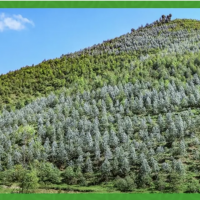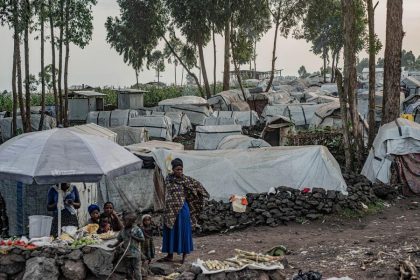African rural communities and safari hunting companies are meeting in Victoria Falls, Zimbabwe for the first time to explore win-win business partnerships at the African Wildlife Consultative Forum (AWCF).
While both hunting companies and African rural communities have finally found each other on the need for a mutually beneficial business partnership, they face a collective threat from the western governments’ ongoing threats to shut down hunting. Queen Elizabeth II recently hinted that the UK could ban trophy-hunting imports from Africa in the future. Elsewhere, the US state of Californianearly succeeded in banning African hunting trophies. And the destructive Cecil Bill currently under review in the US Congress would halt the importation of hunting trophies.
The other identified threat is that of animal rights groups, together with US-based and South Africa born comedian Trevor Noah’s lies that communities are not getting enough benefits from hunting.
“Trevor Noah, I told him to stop lying and invited him to come and see for himself the hunting benefits in Makuya rural community of Limpopo Province, South Africa,” said Ms Esther Netshivhongweni. “Mr Noah has not told more lies on television since then. “I invited him to come and see the benefits of hunting in Makuya, but he disappeared.”
It is against this background that the African communities attending the Safari Club International Foundation funded and Government of Zimbabwe hosted AWCF have called for the repositioning of Africa’s hunting industry.
“This process would include addressing issues related to maintaining good hunting standards and showing how hunting promotes conservation of not only wildlife but biodiversity,” said Ms Netshivhongweni, Sustainable Tourism Advisor for Makuya Traditional Council of Limpopo Province South Africa. “This should also include communities benefiting from the whole value chain of hunting through the formation of a regional community-based huntingorganization to better engage unfair criticisms on hunting as a conservation tool.”
A United Nations Environment Programme (UNEP) representative, Mr Julian Blanc welcomed Ms Netshivhongweni’s proposal to have the communities organize themselves into a regional business.
CEO of South Africa-based hunting company, Africa Wildlife Services, Mr Louis Ebersohn said that they were also offering to do research working with universities and use the information to show the benefits of hunting to both wildlife and biodiversity conservation. Ebersohn is working with the Balepye Community in Limpopo, South Africa and plans to provide training for community members to fully participate in the wildlife management and hunting program there.
Apart from benefiting from hunting, the African hunting communities also want to reposition themselves to inclusively benefit from fresh water fish, plant species that have nutrition and medicinal value, including timber sales where applicable.
Capacity building was highlighted as an urgent requirement for communities as they reposition themselves to do more meaningful and successful business. This includes the need for training to adhere to contractual agreements, wildlife hunting quota-setting, understanding how benefit-sharing works and also the need for good governance. Effective and strategic media communication that involves showing and not telling stories was also identified as an important requirement for repositioning the region’s hunting industry.
Meanwhile, the African governments attending the AWFC said that they recognized and welcomed the need to involve the rural communities in active ownership of their natural resources, including wildlife. This is in line with the June 2019 Africa Wildlife Economy call made by communities.
“We therefore implore you the heads of state and governments in Africa together with the private sector and international organizations to recognize the role of communities in the ownership, management and conservation of natural resources that drives the wildlife economy across Africa and to address our concerns, in the spirit of environmental and economic justice. Let us move from a raw-deal to a New Deal,” said the June 2019, Africa Wildlife Economy Summit that was issued by more than 40 communities from 12 African countries.
African rural community representatives are saying that “it is very wrong to talk about animal rights without talking about human rights.”
One of the key objectives of the AWCF currently under way in Victoria Falls is to review the progress that the African countries have made in promoting and growing its wildlife economy with special focus on the outcome of one of the biggest wildlife meetings held in and outside Africa in 2019. That includes the May 2018, Kasane Elephant Summit, the June 2019 Victoria Falls African Wildlife Economy Summit that western animal rights groups working together with Space for Giants tried to hijack but failed and the Geneva August 2019 CITES COP18 Conference where Africa suffered the heaviest losses ever in their proposals because of vote rigging.
Presenting a report on the African Governments working groups at the 11-15 November 2019 AWCF, Dr Cecil Machena, a Zimbabwean ecologist said that the African governments recognized the need for the continent’s rural communities to participate at the AWCF and CITES meetings. He noted that the SADC governments repeated their disappointment with the defeat of their proposals on the elephant, involving trade in ivory and live elephants as well as Zambia’s proposal to down-list its elephant population from CITES Appendix I to II. Let alone Namibia and Eswatini (Swaziland)’s losses in the bids to trade in live white rhinos and rhino horn trade.
“Fraud, rigged elections, sold votes bought by the Europeans,” said former Botswana Minister of Environment, Natural Resources, Conservation and Tourism, Onkokame Mokaila, describing the stolen election overseen by the UN CITES.
“We fought for political independence and we now have it,” said Tanzania Ministry of Natural Resources and Tourism Director of Wildlife, Dr Maurus Msuha speaking at CITES COP18. “The next fight for us is now the fight for the right to use our resources for the development of our own people. This needs political pressure from our governments who should say that we don’t need this anymore (being denied our sovereign rights to trade in our wildlife products).”
By Emmanuel Koro
About the writer: Emmanuel Koro is a Johannesburg-based international award-winning environmental journalist who has written extensively on environment and development issues in Africa.
The Express News










